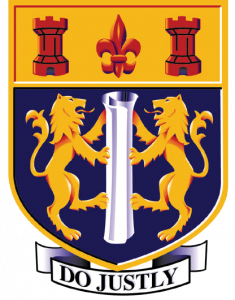
NCEA Level 3 Economics 301
ECO301 Course DescriptionTeacher in Charge: M. McIntosh.
Recommended Prior LearningA study of level 1 or level 2 Economics will be helpful, or alternatively a study a Business, History or Geography. There is a small amount of mathematics in this course so students are recommended to have studied a level two math's course.
Students who have not studied Economics before are recommended to speak with the Teacher in Charge of Commerce.
Economics 301
In Level 3 Economics we will help you understand technically what the government’s role is in the economic system of New Zealand and so give you the ability to judge them in terms of economic efficiency and equity. This course will at the same time provide you with an in-depth understanding of the theory of both business, consumer demand as well as government economic policy decisions. This includes the theory of capitalism as well as environmental economics.
UE Approved Subject
Scholarship and Extension Program offered via a 100 level paper with the University of Canterbury.
Additional extension opportunities include: The Reserve Bank Monetary Challenge, The New Zealand Economics Competition as well as other competitions and challenges that come up from New Zealand Universities and New Zealand organisations.
Course Overview
Term 1
Microeconomic Concepts (ECO 3.1, 3.2 and 3.3):
Marginal Utility and Demand
Marginal Cost and Supply
Price Elasticity Of Supply
Elasticities of Demand
Market Equilibrium and Market Forces.
Term 2
Microeconomic Concepts & Allocative Efficiency (ECO 3.1, 3.2 and 3.3)
Market Equilibrium and Indirect Taxation and Subsidies - Implications of Price Elasticity of Demand/Supply
Introduction to Allocative Efficiency: Changes to Demand and Supply, Consumer and Producer Surplus - gains from exchange
Government Intervention and Dead Weight Loss: Price Controls, Quotas, Taxations, Subsidies, Tariffs.
Market Structures: Industry Competition Case Studies.
Term 3
Marginal Analysis and Market Structures (ECO 3.2)
Monopolies v Perfect Competition.
Derived Grade Exams (TBC)
Market Failure (ECO 3.4)
Forestry Slash and Production Externalities
Public Good Management
Inequality - Poverty in NZ.
Term 4
Market Failure/Exam Revision (ECO 3.1, 3.2 & 3.5 - By request)
Assessment Information
AS 91401 (ECO 3.3) Will be assessed over 3 different microeconomic concepts in term 1 and 2.
AS 91402 (ECO 3.4) will be an individual report on a Market Failure in term 3/early term 4.
Chemist, Barrister, Automotive Technician, Electrical Engineer, Emergency Management Officer, Legal Executive, Solicitor, Corrections Officer, Judge, Personal Assistant, Early Childhood Teacher, Environmental Engineer, Fishery Officer, Food Technologist, Gardener, Policy Analyst, Author, Journalist, Photographer, Managing Director/Chief Executive, Civil Engineer, Economist, Game Developer, Payroll Officer, Management Consultant, Data Analyst, Bank Worker, Farmer/Farm Manager, Building Contractor, Buyer, Motor Vehicle Salesperson, Insurance Claims Officer, Community Development Worker, Event Manager, Quantity Surveyor, Mining Engineer, Retail Manager, Statistician, Baker, Hotel/Motel Manager, Cafe Worker, Debt Collector, Property Manager, Butcher, Waiter/Waitress, Cafe/Restaurant Manager, Urban/Regional Planner, Kitchenhand, Chef, Elected Government Representative, Animator/Digital Artist, Cook, Sales Representative, Accountant, Auditor, Accounts Officer, Actuary, Office Administrator, Finance Manager, Receptionist, Advertising Specialist, Copywriter, Sales and Marketing Manager, Survey Technician, Personal Trainer/Exercise Professional, Agricultural/Horticultural Scientist, Agricultural Technician, Agricultural/Horticultural Consultant, Mechanical Engineering Technician, Product Assembler
Contributions and Equipment/StationeryStudents will need a calculator and ruler in addition to standard stationery.